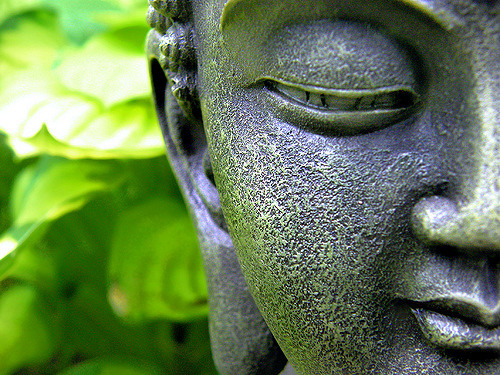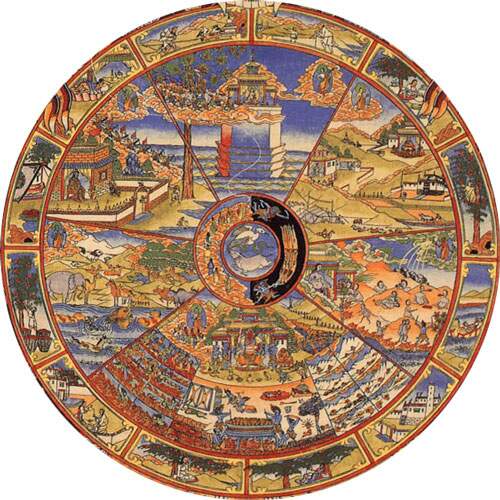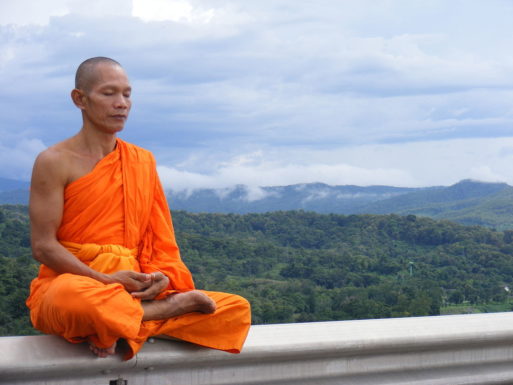
Credit: Flickr.com by Wendy Piersall
One of the primary concepts behind most schools of Zen Buddhism is the idea that there is no real “self” who is born or dies. If one believes in this concept, it seems that the idea of “rebirth” doesn’t fit into Zen Buddhist teachings. If there is no “self” that is born or dies, how can it be reborn?
This is a question that students of Zen have been navigating for centuries.
According to many traditional schools of Buddhism, rebirth refers to the cycle of living and dying, or the idea that every living creature will eventually become one with all other matter in the universe. However, the meaning of rebirth varies between different Buddhist schools of thought. For instance, some modern Buddhists believe that people are born into six realms of existence. One can be born in a heavenly, demi-god or human existence, or an animal, hungry ghost or hellish existence. These realms are called Samsara, and the goal is to move beyond all of them and reach “nirvana,” the spiritual realm where one comes to understand the impermanence of all things and accepts that the “self” is an illusion.
Other, older Buddhist teachings present a different idea of what it means to be reborn. Those who ascribe to these beliefs don’t accept the concept of realms of existence, but instead think that to imagine being reborn at all is to reject the basis of Zen and the Buddha itself.

Credit: wikipedia.org
To understand this more fully, it helps to look at the teachings of Dogen Zenji, who founded the Soto school of Zen in the early 13th century. One of the world’s most revered teachers of Zen Buddhism, Dogen wrote this about death and Zen, “Firewood, after becoming ash, does not again become firewood. Similarly, human beings, after death, do not live again.” His teachings emphasized that humans should make the most out of every moment rather than relying on faith or the belief that life continues in other forms after death.
Yet this was not the entirety of what Dogen taught. In many instances, he discussed the possibility of moving on to another realm.
The reason why many modern Zen Buddhists now reject the concept of rebirth, especially the realms of Samsara, is because Zen teaches that what is important is to live in the present. Some of the oldest Zen Buddhist teachings make no claims at all regarding what happens after someone dies, but simply teach that we should live in the moment in order to rid ourselves of suffering. This is one reason why many non-religious people have turned to the philosophies of Zen in recent decades.

Credit: wikipedia.org
Buddhism straddles the line between secular philosophy and religion. Its most basic teachings don’t require followers to have faith in any particular god or gods. Buddhism is also one of the most diverse religions in the world in terms of its followers’ philosophies and beliefs. Buddhist revivalists in India believe that taking intoxicants of any kind will prevent them from reaching enlightenment. Yet some Zen students choose meditation as their only physical devotion to Buddhism. In theory, as long as an individual rejects the concept of “self” and accepts the impermanence of life with detachment, it doesn’t matter whether that individual believes in rebirth or reincarnation. This sets Buddhism apart from most religious philosophies.

 Do All Zen Buddhists Believe in Rebirth?
Do All Zen Buddhists Believe in Rebirth?


 First the Wealth Gap, Now the U.S. Has a Growing Health Gap
First the Wealth Gap, Now the U.S. Has a Growing Health Gap
 How to Comfort A Dying Loved One
How to Comfort A Dying Loved One
 Our Annual Seven Holiday Gifts for Someone Who Is Grieving, 2024 Edition
Our Annual Seven Holiday Gifts for Someone Who Is Grieving, 2024 Edition














